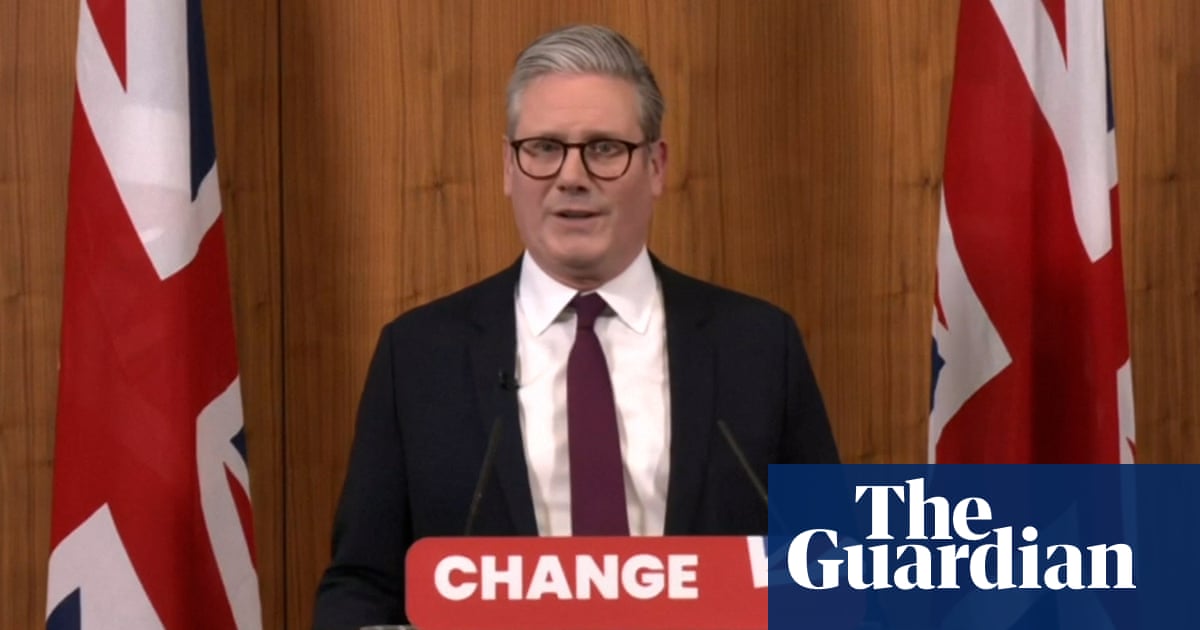
If the setting was grand, a wood-panelled state room in the heart of 10 Downing Street, the arrival was not. Keir Starmer simply walked from another room to the lectern, without an announcement or entourage, and after a quick smile, began speaking to the assembled reporters.
This was the first press conference of the Labour government, and within the generally careful answers from the new prime minister were contained several hints about his style and approach, some of which we knew, others maybe less so.
When it came to policy the message would have been familiar to anyone who followed Labour’s election pledge: we will work at speed, but things are difficult and we can’t guarantee when things will feel noticeably better.
All new governments want to project a sense of momentum, hence the ubiquitous references to a first 100 days, and Starmer promised he had “hit the ground running” three times within about 30 seconds. Labour had been planning for months, he promised. Action was already being taken.
There was also a reiteration of the pledge to govern for the whole UK, with Starmer saying in his opening remarks that he would set off immediately to see the leaders of the devolved UK nations, and then gather the various metro mayors.
Most prominent of all, as stressed in his first speech in Downing Street on Friday morning, was the repeated pledge to end the ideological drama and govern for the benefit of the nation, not his own party. This was, Starmer said, “a government of service to all people, whether they voted for us or not”.
More novel were the glimpses of Starmer the brand new PM, saying that he still had only a “basic understanding” of the No 10 layout, and wouldn’t get round to fully unpacking before he returns from next week’s Nato summit in Washington.
Similarly personal was the admission that he didn’t fully trust the election night exit poll, and could only relax after staying up till 5am, watching the actual results come in. There was also an explanation that while he still found it slightly strange being addressed as “prime minister”, he realised that officials might want to call him that “because they’re serving the office”.
This was, Starmer said, something familiar to him from his time as director of public prosecutions. Another glimpse of his former career came when he slightly dodged a question about whether his appointment of James Timpson as prisons minister meant he shared Timpson’s reformist views on jailing fewer people.
Without explicitly endorsing this, Starmer recounted his years sitting in criminal courts as a lawyer watching young men in particular get on the “escalator” of crime, prison, and then more crime, describing how this cycle might be broken.
But perhaps most notable of all was how relaxed it all felt. The argument has been made that while Starmer may not be the most natural campaigning politician, he is comfortable running a big organisation. And here it showed.
The slightly tense Labour leader of the election trail was replaced by a more obviously affable figure who made jokes about his wife working for the NHS – “as I may have mentioned” – and called TV reporters to ask questions by their first name only.
Of course, few things in politics are better for the mood than winning a landslide election victory. But this felt like a leader who believes that even with the magnitude of his Commons majority not matched by the popular vote, he has the mandate and the time to enact his programme.
How long will all this last? Things will, to borrow the Blair-era song, inevitably get harder. But as a tonal contrast to the bunker mentality of the final Rishi Sunak months, it could barely be more different.












